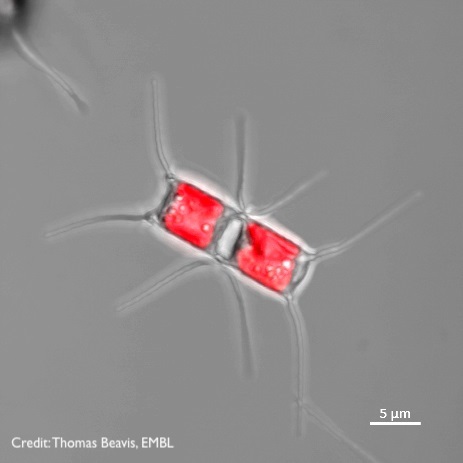
Flora Vincent
Group Leader
EditUnderstanding life in its natural context
The Chaetoceros Diatom as an Ecologically Relevant Model System for Molecular and Cell Biology Research.
Diatoms are unicellular eukaryotic algae critical for life on Earth, responsible for 25% of annual primary production and forming the basis of the marine ecosystem.

The Chaetoceros diatom is the most common and diverse ocean diatom genus with following traits: 1) phenotypic plasticity, with both uni- and muti-cellular forms 2) symbiotic interactions with bacteria, viruses and eukaryotes 3) strong growth response to global warming, posing a potential threat and 4) significant biotech potential for biofuel production. We aim to lay strong foundations leading to the establishment of the Chaetoceros diatom as an ecologically relevant model system, by implementing state of art molecular and cell biology approaches, such as expansion microscopy and single cell transcriptomics.
Dey Group, EMBL Heidelberg
Dorrity Group, EMBL Heidelberg

Group Leader
Edit